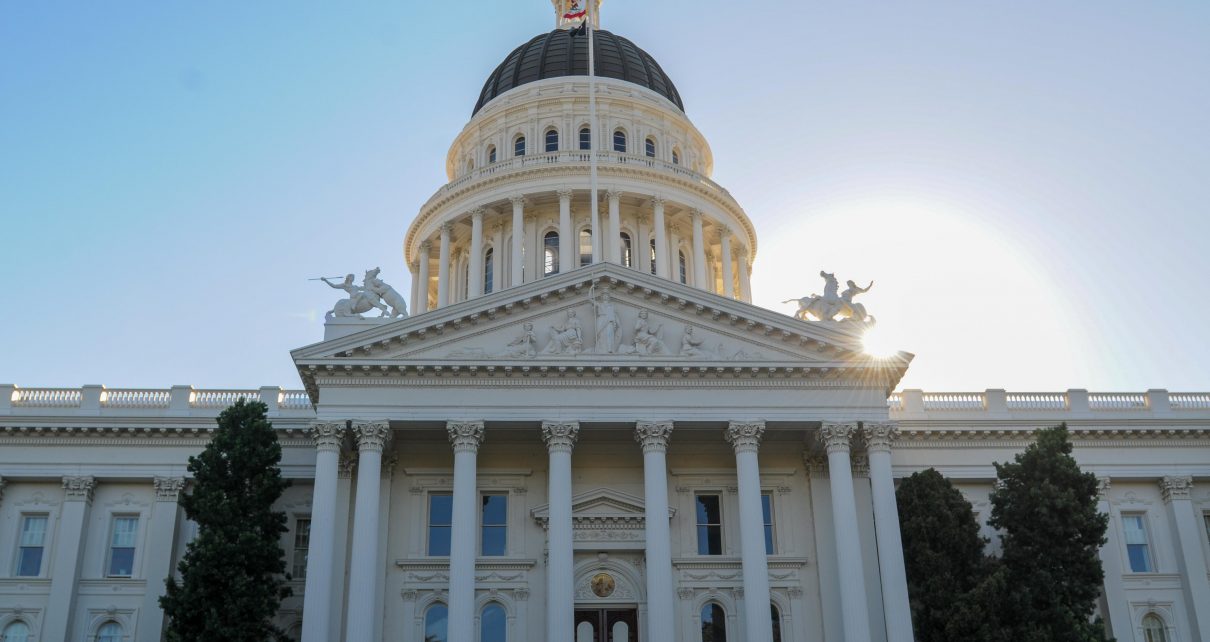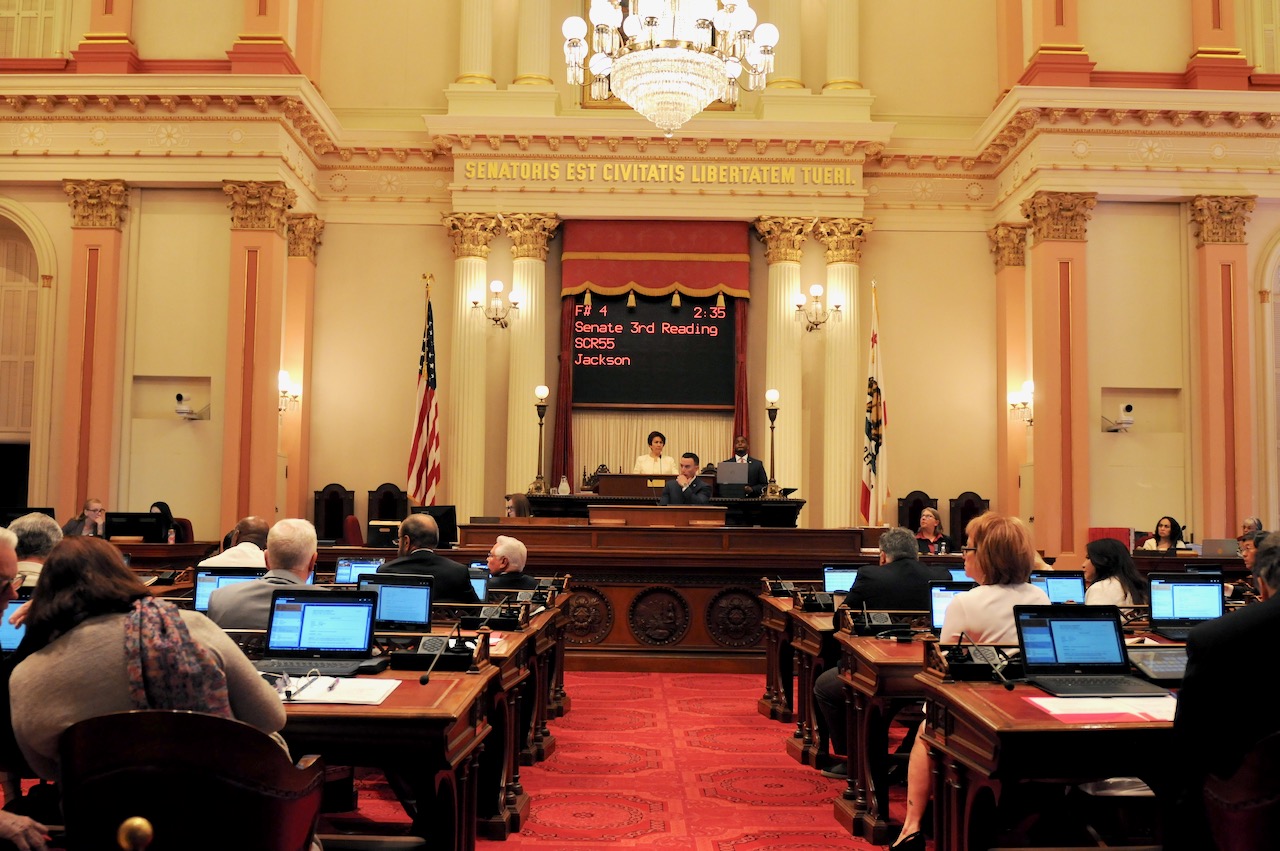
California State Capitol. (Photo: Kevin Sanders for California Globe)
Frequently Asked Questions about the First Part of the Legislative Session
The Governor must report to the Legislature each year on the condition of the state
By Chris Micheli, June 19, 2024 2:30 am
What generally happens in the first part of the California Legislative Session? During the first part of the first year of a two-year Session, legislators await their committee assignments, consider proposals for authoring bills and, for the new Members, they have dozens of “meet-and-greet” appointments in which they meet their colleagues, constituents and lobbyists. This usually occurs in January and most of February.
By March, the budget subcommittees and policy committees begin hearing bills and budget proposals. After policy committees hear and vote on bills, the vast majority of measures are considered by the fiscal committee (which we call the Appropriations Committee). Once bills pass the fiscal committee, they head to the respective floor for final consideration in their house of origin.
What is the usual legislative calendar in the first part of the Session? The Assembly Chief Clerk and the Senate Secretary prepare a calendar for the session with the corresponding authority (found in the Joint Rules – JR) for these dates:
Legislature reconvenes (J.R. 51(a)(1)).
Budget must be submitted by the Governor (Art. IV, Sec. 12(a)).
Last day to submit bill requests to the Office of Legislative Counsel.
Last day for bills to be introduced (J.R. 61(a)(1), (J.R. 54(a)).
Last day for policy committees to hear and report to the fiscal committees all fiscal bills introduced in their house (J.R. 61(a)(2)).
Last day for policy committees to hear and report to the Floor nonfiscal bills introduced in their house (J.R. 61(a)(3)).
Last day for policy committees to meet prior to June 3 (J.R. 61(a)(4)).
Last day for fiscal committees to hear and report to the Floor bills introduced in their house (J.R. 61(a)(5)).
Last day for fiscal committees to meet prior to June 3 (J.R. 61(a)(6)).
Floor session only. No committees, other than conference or Rules committees, may meet for any purpose (J.R. 61(a)(7)).
Last day for bills to be passed out of the house of origin (J.R. 61(a)(8)).
What are the constitutional requirements in the first part of the Session? The Legislature must convene its regular session at noon on the first Monday in December of every even-numbered year and they must undertake their organization that day (e.g., election of officers) (Article IV, Section 3).
The constitutional officers take office on the Monday after January 1 following their election, Section 2).
The Governor must report to the Legislature each year on the condition of the state. This is called the “State of the State” address. The Governor may, but is not required to, make recommendations to the Legislature at that time (Article V, Section 3).
Within the first 10 days of each year, the Governor must submit to the Legislature a budget for the forthcoming fiscal year (which begins July 1). This is why the Governor’s first budget proposal is called the Governor’s “January 10 Budget.” The budget must include an explanatory message, as well as itemized statements for expenditures and estimated revenues. The Governor may require a state agency or employee to furnish whatever information he or she deems necessary to prepare the budget. The budget bill must be introduced immediately in each house by the budget committee chairs of the Senate and Assembly. The Legislature must pass the budget by midnight on June 15 (Article V, Section 12).
When each regular session convenes, the President pro tempore of the Senate, the Speaker of the Assembly and the two minority leaders must report to their houses the goals and objectives of that house during that session (Article V, Section 22).
No bill, other than the budget bill, may be heard or acted upon by a committee or either house until it has been in print for 30 days after introduction. Either house can dispense with this rule by a ¾ vote of that house. A bill cannot be passed unless it has been read by its title on 3 days in each house. But this rule can also be dispensed with by a 2/3 vote of the house’s members (Article IV, Section 8).
What are the statutory requirements in the first part of the Session? The budget submitted by the Governor to the Legislature within the first 10 days of each session must contain a statement of accounts payable for the prior fiscal year and for the current fiscal year, as well as the succeeding fiscal year (Government Code Section 12020).
The budget submitted by the Governor to the Legislature within the first 10 days of each session must contain a statement of cash flow for the prior fiscal year and for the current fiscal year, as well as the succeeding fiscal year (Government Code Section 12021).
- Commercial Fishing - February 26, 2026
- Are These Extra Words Needed in California Statutes? - February 25, 2026
- Attorneys-in-Fact in Probate - February 25, 2026



